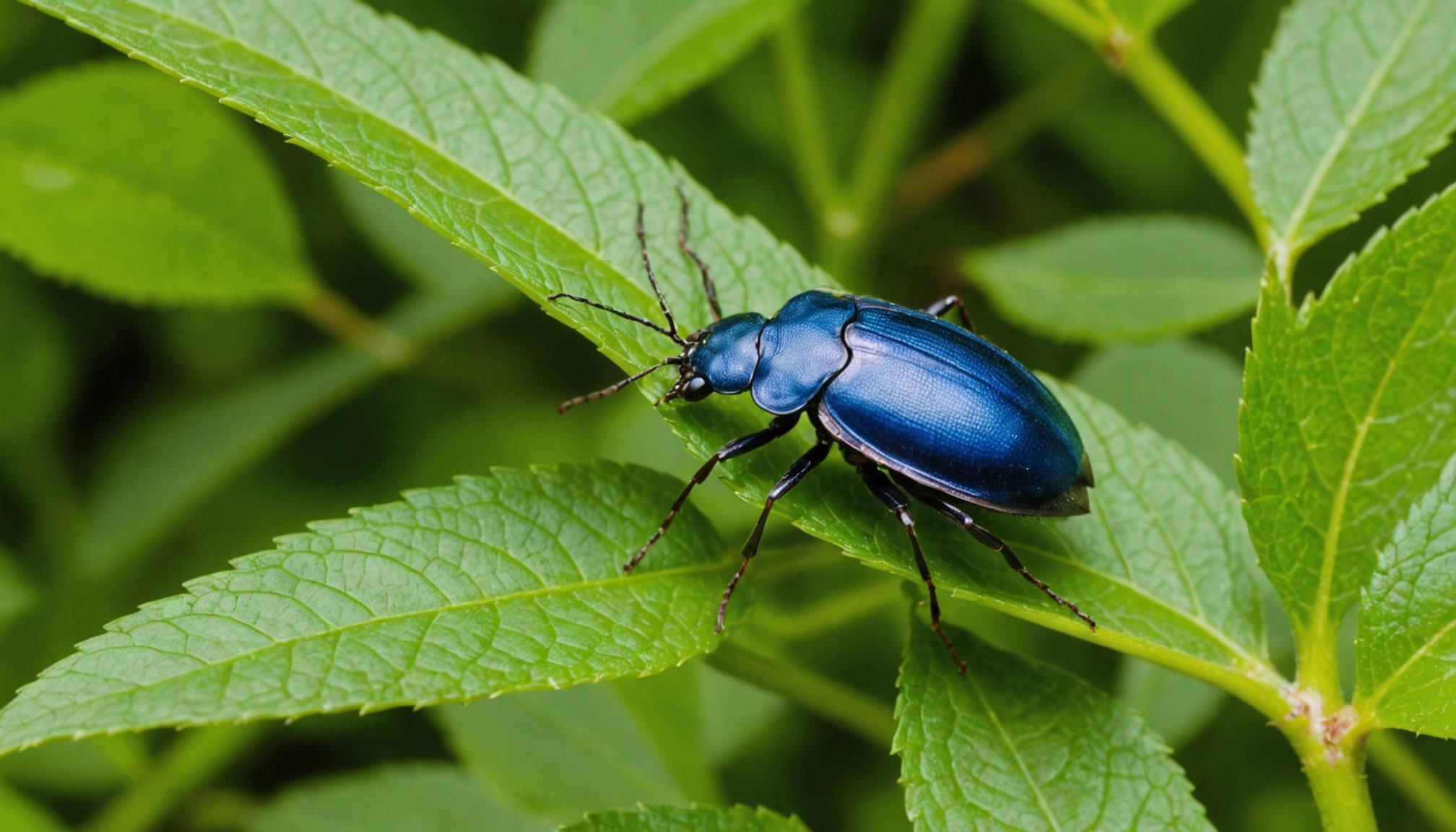Understanding Eco-Friendly Pest Control
In the UK, eco-friendly pest control is gaining traction as gardeners seek sustainable solutions to protect their plants. Concerns about the negative effects of chemical pesticides, such as harming non-target species and contributing to environmental pollution, highlight the need for more sustainable gardening practices.
Common Garden Pests
Gardeners often encounter pests like aphids, slugs, and caterpillars. These creatures, while a natural part of the ecosystem, can cause significant damage to plants. Traditional pesticides can be effective, but they often come with drawbacks, like reducing biodiversity and creating pesticide-resistant pest populations.
A lire en complément : The Ultimate Guide to Selecting Durable Wood for Long-Lasting UK Garden Furniture
Benefits of Natural Pest Management
Adopting natural pest management techniques can offer numerous advantages. These methods focus on reducing harm to beneficial insects and the wider environment while maintaining garden health. For instance, introducing natural predators, such as ladybirds to manage aphid populations, can be a practical solution. Additionally, using organic repellents made from garlic or neem oil can deter pests without harming plants or beneficial insects.
By employing eco-friendly pest control, gardeners not only protect their plants but also contribute to long-term garden health, enhancing biodiversity and promoting a balanced ecosystem. As sustainable gardening continues to gain importance, understanding these benefits encourages a positive shift towards more environmentally conscious practices.
A lire aussi : Creative Ways to Integrate Reclaimed Wood into UK Home Decor: Innovative Ideas You’ll Love
Natural Remedies for Pest Control
Finding effective solutions for handling pests without harsh chemicals is possible with natural pest remedies. By harnessing simple, DIY pest control techniques using herbs, essential oils, and homemade traps, you can maintain a pest-free environment using organic solutions that are safe for both humans and nature.
Herbal Solutions
Harnessing the power of herbs can be a formidable way to tackle pests. Beneficial herbs such as basil, mint, and lavender not only create an aromatic environment but also repel insects. To craft herbal deterrents, preparing homemade herbal sprays is straightforward. You can steep these herbs in water, strain the liquid, and use a spray bottle to apply them around your home or garden. This method ensures pests are kept at bay without synthetic chemicals.
Essential Oils
Recommended essential oils are another potent tool in the fight against pests. Oils like tea tree, eucalyptus, and peppermint are widely known for their repelling properties. When applying essential oils, dilution is crucial. Mix a few drops with water in a spray bottle or add to a diffuser. Consistency in the application methods ensures that you achieve the most effective results in maintaining a pest-free zone.
Homemade Traps
Creating your own traps can be both sustainable and effective. For common pests such as flies or ants, you can design custom traps using household items. Materials needed for DIY pest traps are often things like jars, plastic bottles, or sticky tapes. By setting these strategically, you can capture pests and protect your space effortlessly.
Attracting Beneficial Insects
A thriving garden ecosystem relies on a balanced mix of plants and insects. Beneficial insects play a crucial role in pest control, reducing the need for chemical pesticides. By attracting these allies, gardeners can protect plants from common pests. For instance, ladybugs and lacewings are natural predators that feed on aphids and other harmful insects. Inviting such beneficial insects into your garden can be achieved by ensuring the availability of nectar, pollen, and suitable habitats.
Companion planting is a strategic approach to foster an environment that supports these helpful insects. This method involves growing plants that either naturally repel pests or attract beneficial insects. Companion planting capitalizes on the symbiotic relationships between plants, enhancing pest control through natural predators. For example, planting marigolds near vegetables can deter some harmful insects, while yarrow and alyssum are known to attract ladybugs and lacewings.
Supporting pollinators such as bees and butterflies not only aids in pest management but also boosts plant health and yields. By cultivating a diverse range of flowering plants and herbs, gardeners provide essential resources for these insects. Embracing these strategies supports a healthy, robust garden, turning it into a haven for beneficial insects.
Cultural Practices for Pest Management
In sustainable gardening practices, maintaining soil health and promoting biodiversity are crucial elements. Healthy soil hosts diverse organisms that contribute to a resilient ecosystem, naturally controlling pest populations. Incorporating integrated pest management strategies, such as encouraging beneficial insects, maximises the ecosystem’s ability to self-regulate.
Crop rotation is another essential practice that enhances soil fertility and reduces pest problems. By rotating crops, particularly those from different plant families, gardeners minimize the likelihood of pests and diseases from establishing a strong foothold. Over time, this practice can significantly disrupt the life cycle of many pests that depend on specific plants.
Furthermore, integrating plant diversity within the garden acts as a natural pest deterrent. By mixing different plant species, one can create an environment less hospitable to any one pest species, as they often rely on specific plants for survival. This variety not only confuses pests but also supports a wider range of beneficial organisms.
- Maintain a diverse range of plant species
- Promote biological pest control through natural predators
- Alternate crop types to prevent pest infestations
Embracing these practices ensures a balanced approach to pest management, reducing the need for chemical interventions. By fostering a harmonious garden environment, one can enjoy healthier plants and more sustainable yields.
Specific Pest Solutions for UK Gardens
Managing garden pests in the UK requires targeted pest control strategies. Not only do these pests pose a threat to our beloved flora, but their presence can also prove quite frustrating for anyone attempting to maintain a healthy garden.
Aphids
Aphids are common UK garden pests, recognizable by their small, pear-shaped bodies. To manage an aphid infestation, observe plants for distorted growth or a sticky residue. Natural predators like ladybirds can be highly effective in controlling aphid populations. For a more direct approach, you can wash them away with water or use neem oil as a non-toxic treatment.
Slugs and Snails
These critters are notorious for ravaging leafy plants. An eco-friendly approach to controlling them includes creating barriers with crushed eggshells or copper tape, which deter their progress. Beer traps are an amusing yet effective method; slugs are drawn to the yeast and subsequently trapped. Utilize these localized solutions to safeguard your garden.
Whiteflies
Whiteflies can wreak havoc, especially in greenhouses. For managing them, introducing beneficial insects like parasitic wasps helps control their numbers naturally. Alternatively, insecticidal soap offers a targeted pest control method, disrupting their lifecycle without harsh chemicals, thus maintaining garden harmony.
Product Recommendations
When choosing eco-friendly pest control products, it’s crucial to find options that are effective yet safe for both the environment and your garden. An increasing number of gardeners are turning to organic pesticides as a sustainable solution to pest issues. These products are made from natural ingredients and are designed to minimise harm to non-target species.
One of the top considerations for selecting organic pesticides is evaluating their active ingredients. Look for options that utilise plant-based oils or minerals, as these tend to be gentler on the surrounding ecosystem. Furthermore, it’s beneficial to check for certifications that guarantee their eco-friendly status.
Several reliable brands offer certified sustainable garden care solutions in the UK. Brands like Neudorff, Vitax, and BioDiverse stand out for their commitment to creating effective and responsible pest control products. You can purchase these products from popular garden centres or online retailers.
In terms of choosing the right sustainable garden care solutions, consider the specific pests you are dealing with and the size of the affected area. Additionally, take into account the product’s mode of application. Liquid sprays might be ideal for smaller areas, whereas granular applications are better suited for larger spaces.
By prioritising eco-friendly pest control products, you can maintain a healthy and thriving garden.
Additional Resources and Reading
Diving into sustainable gardening can be not only rewarding but also a shared journey. Several online gardening resources provide guidance and community support. Discover organizations like the Permaculture Institute, which offers eco-friendly gardening guides and workshops. Their resources help in constructing resilient ecosystems by combining traditional and innovative techniques.
For those who prefer the weight of a book in hand, consider “Gaia’s Garden” by Toby Hemenway. This classic delves deep into eco-friendly pest control and sustainable practices that empower you to cultivate a balanced garden. Similarly, “The Sustainable Vegetable Garden” by John Jeavons provides practical advice to enrich your gardening skills.
Engaging with local gardening communities can also be immensely beneficial. Check out local clubs or online forums where enthusiasts exchange ideas and solutions for greener gardens. Platforms like Facebook Groups or Community Forums often host local meetups and discussions, perfect for newcomers to the eco-friendly gardening sphere.
These resources encourage collaborative learning and foster a spirit of shared knowledge. Whether you’re gleaning tips from a seasoned gardener or finding new friends who share your passion, these communities provide invaluable support in your quest for sustainability. Connect, learn, and grow your garden to be as eco-friendly as possible!











